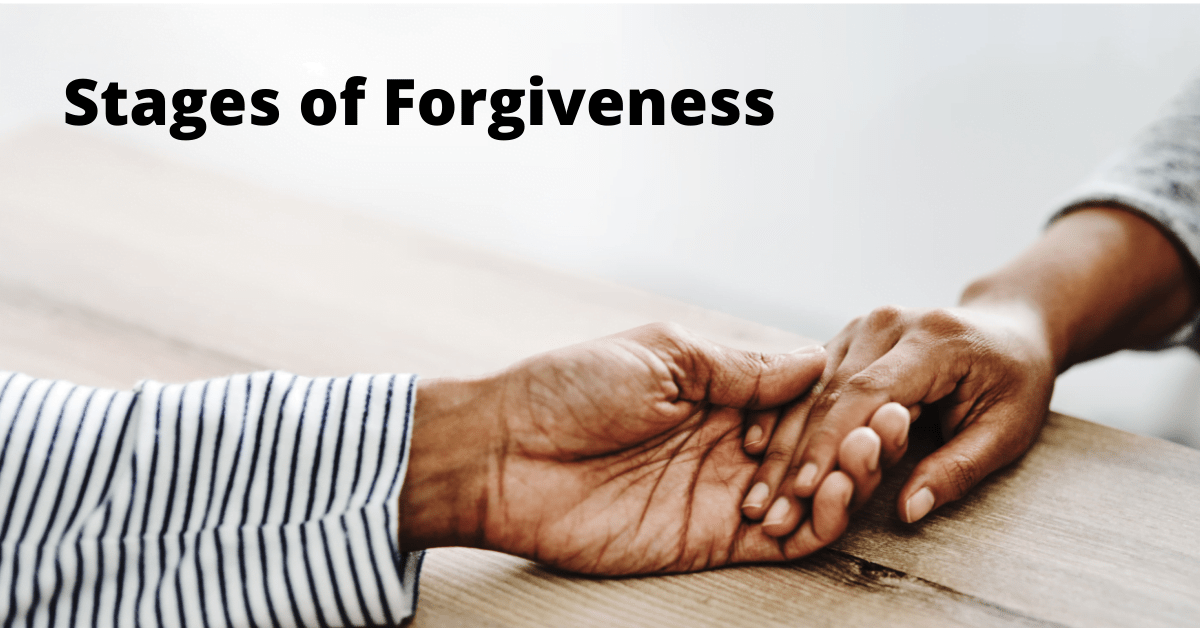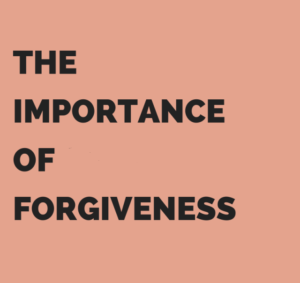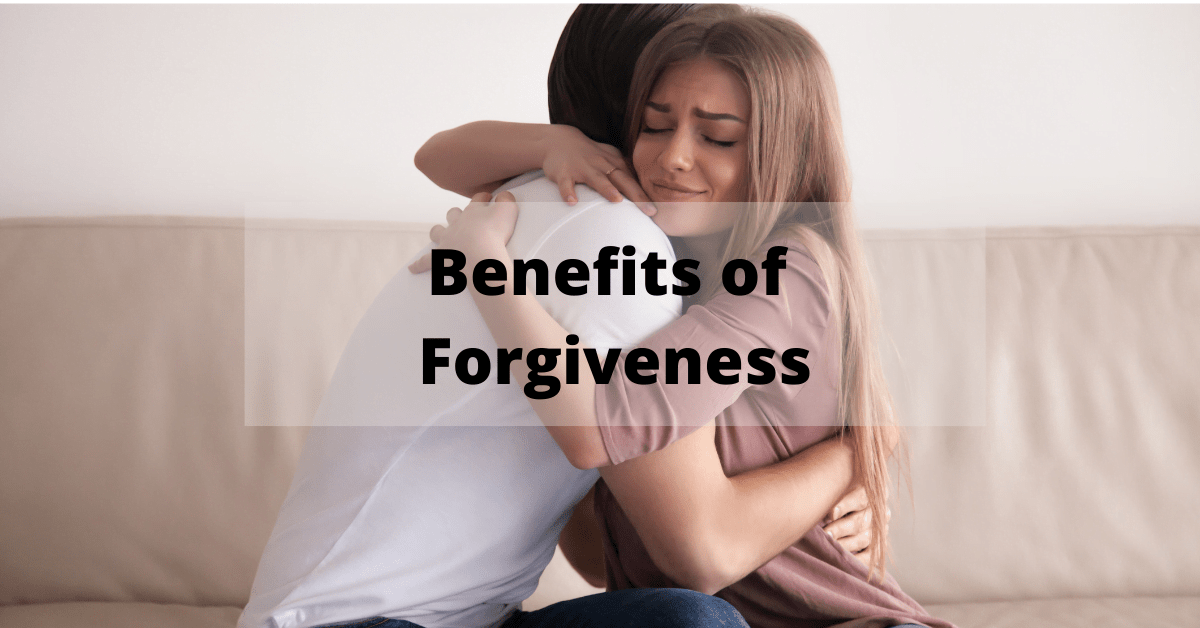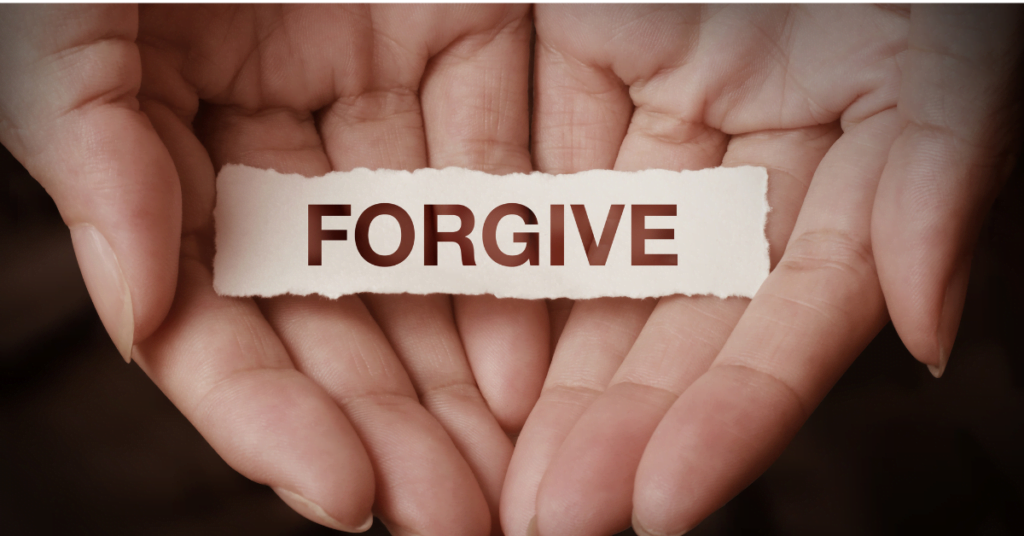Forgiveness has the power to change your life. It is something that we all need, but few of us know how to do it. For most people, forgiveness means forgiving another person for hurting them in some way. It can be anything from gossiping about you behind your back or physically abusing you. However, there are many ways that we hurt ourselves, and holding onto anger only hurts us more than anyone else! This blog post will teach you not just one way to forgive yourself (or others).
Contents
What Is Forgiveness?
 Forgiveness is a process of letting go of anger and resentment. It is the reunion with yourself, a reunion with your own inner peace.
Forgiveness is a process of letting go of anger and resentment. It is the reunion with yourself, a reunion with your own inner peace.
Forgiveness can be difficult to achieve. This is because it asks you not only for a change in the heart but also a changing perspective on life as a whole. A new understanding that perhaps there has been no wrongdoing from either party at all! This may sound strange or even impossible to those who have suffered traumatic experiences such as abuse, rape, or assault. In these instances forgiveness might seem an unattainable concept because the perpetrator was never held responsible for their actions nor did they ever take responsibility themselves by apologizing. Even so, victims often find it easier said than done to forgive them anyway due to feelings of betrayal and hurt which are still ever-present.
Forgiveness is a personal journey in your life, and the process of forgiving someone involves releasing resentment toward them for what they have done to you or others so that you can stop being constantly reminded about it, hurt by it every time something reminds you of their actions. You do not need to go through this alone; there are groups who will help support you along your journey if necessary.
Stages of Forgiveness

There are five stages of forgiveness:
Uncover Your Anger
Uncovering your anger is the first step in forgiving someone. This usually happens after an event that triggers strong emotions within you, such as a traumatic experience. All of the anger and resentment that you have been carrying around with you begins to surface and it can be overwhelming. You may feel like you are not ready or capable of forgiving yet, but this is all part of the process. This stage can last for a long time, and that is okay.
Express Your Anger
The next step is to express your anger. This can be done in many ways such as writing down your thoughts and feelings, talking to someone you trust about what happened, or even screaming into a pillow! It is important that you allow yourself to feel all of the emotions associated with the anger so that you can begin to let go of it. This stage can also last a long time.
Release Your Anger
The next step is to release your anger, which can result from the previous steps of uncovering and expressing it. This usually happens after you have been able to vent about what happened or when you are finally ready to let go of all those feelings that were pent up inside for so long. Releasing your anger does not mean forgetting about what happened – it simply means that you do not need the memory as a reminder anymore because you have accepted that this was an experience in your life that has made changes but one that no longer needs to control how you live today. Acceptance is a big part of releasing your anger and resentment toward another person, giving yourself permission to move forward with
Take Responsibility for Your Own Emotions
After you have expressed your anger, the next step is to take responsibility for your own emotions. This means that you stop blaming the other person for how you are feeling and instead take ownership of them. You recognize that although they may have caused pain, it is up to you to choose how to react from that point forward. This can be a difficult step, but it is an important one in the process of forgiving someone.
Forgive
The final stage of forgiveness is forgiving the person who hurt you. This does not mean that they are absolved of their actions, but it allows you to move on and live your life without the anger and resentment holding you back. It is a process that takes time and often requires support from others, but it is possible with effort and determination. Forgiveness is a freeing experience and allows you to live a happier, more peaceful life.
Importance of Forgiveness
 Forgiveness is very important in one’s life because it allows one to move on from painful experiences and memories. It is not easy to forgive someone, but it is worth the effort because it can free you from the anger and resentment that have been controlling your life. Forgiveness does not mean that what happened was okay, but it means that you no longer want the hurtful experience to define who you are. When you forgive someone, you also forgive yourself for any role you may have played in the situation.
Forgiveness is very important in one’s life because it allows one to move on from painful experiences and memories. It is not easy to forgive someone, but it is worth the effort because it can free you from the anger and resentment that have been controlling your life. Forgiveness does not mean that what happened was okay, but it means that you no longer want the hurtful experience to define who you are. When you forgive someone, you also forgive yourself for any role you may have played in the situation.
Forgiveness is a process that takes time and often requires support from others, but it is possible with effort and determination.
Forgiveness is very important in one’s life because it allows one to move on from painful experiences and memories. It is not easy to forgive someone, but it is worth the effort because it can free you from the anger and resentment that have been controlling your life. Forgiveness does not mean that what happened was okay, but it means that one no longer wants the hurtful experience to define who they are. When one forgives another person, one also forgives themselves for any role they may have played in a situation.
Benefits of Forgiveness

These are some of the benefits of forgiveness:
Helps To Heal Wounds
Forgiveness can help to heal the emotional wounds that were caused by the hurtful experience. It allows you to start fresh and move on from the pain. This can be a difficult process, but it is worth the effort.
Brings Closure
Forgiving someone can also provide closure to the situation. It allows you to move on and put the experience behind you. This can be helpful in order to focus on the present and future rather than the past.
Reduces Anger and Resentment
Forgiveness can help to reduce anger and resentment, which are harmful emotions that can damage relationships and quality of life. When these feelings are released, one can live more peacefully.
Promotes Mental Health
Forgiveness has been shown to promote mental health and well-being. It allows people to let go of negative emotions and thoughts that can be detrimental to one’s health. This can lead to increased happiness, peace, and satisfaction with life.
Side-Effects of Forgiveness

Have you been struggling with forgiving someone? If so, then you are not alone. Forgiveness can be a difficult thing to come to terms with in life and it is often hard for us to move forward in our lives without feeling like we have forgiven the person who wronged us. But there are some side effects of forgiveness that people don’t talk about. Some of them are:
May Cause Guilt
Forgiving someone may cause guilt, especially if the person is not sorry for their actions. It can be difficult to forgive someone who does not seem to regret what they have done.
May Cause Bitterness
It is also possible for forgiveness to lead to bitterness if it is not handled correctly. This often happens when people try to skip over some of the earlier steps in the process or do not feel ready to forgive yet. If this happens, it is important to seek help from a therapist or other professional in order to work through the emotions.
Can Be Used As Weapon
Forgiveness can also be used as a weapon against someone, which is unhealthy and harmful. This occurs when a person tries to forgive too quickly without going through the process. When this happens, it is important to take time and reflect on how you feel before coming to any conclusions about your situation.
Can Lead To Tension
When you choose to forgive someone, it can often lead to a lot of tension and stress in your life. This is because forgiveness isn’t always easy- sometimes you have to work through a lot of pain and anger before you can truly forgive the person who hurt you. And this process can be very stressful on your minds and bodies.
Can Cause Resentment
Another side effect of forgiveness is that it can actually lead to resentment. This happens when you try to forgive someone, but we still feel angry and hurt by what they did to us. You may start to feel like you are not good enough or that you are weak for forgiving the person who wronged you.
Can Lead To Self-Hatred
When you are trying to forgive someone, but they keep hurting you over and over again, it can lead to self-hatred. It is really easy for you to say that you have forgiven this person when in actuality what happened was that you just stopped dwelling on the fact that they did or said something hurtful towards you. This can lead to a lot of self-hatred and negative feelings towards yourself.
Conclusion
Forgiveness is a process that takes time and often requires support from others, but it is possible with effort and determination. Forgiveness is very important in one’s life because it allows one to move on from painful experiences and memories. It is not easy to forgive someone, but it is worth the effort because it can free you from the anger and resentment that have been controlling your life. Forgiveness does not mean that what happened was okay, but it means that one no longer wants the hurtful experience to define who they are. When one forgives another person, one also forgives themselves for any role they may have played in a situation.
If you are looking for affordable Online Counseling MantraCare can help: Book a trial therapy session


